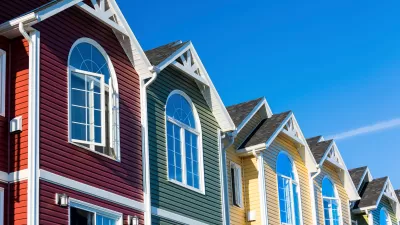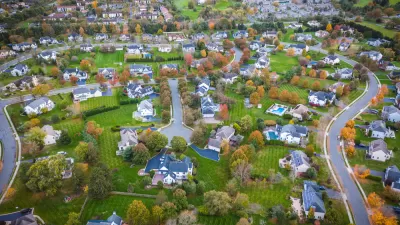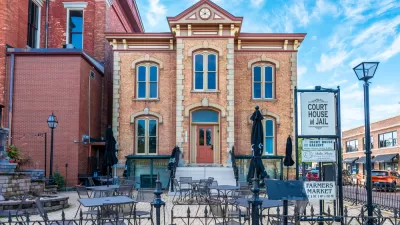Thousands of Americans who have lost their homes in the foreclosure crisis may find themselves ineligible to vote in November.
"More than a million people have lost their homes through foreclosure in the last two years, and many of them are still registered to vote at the address of the home they lost. Now election officials and voting rights groups are struggling to prevent thousands of them from losing their vote when they go to the polls in November.
Many of these voters will be disqualified at the polls because, in the tumult of their foreclosure, they neglected to tell their election board of their new address. Some could be forced to vote with a provisional ballot or challenged by partisan poll watchers, a particular concern among Democrats who fear that poor voters will be singled out. That could add confusion and stretch out lines that are already expected to be long because of unprecedented turnout.
Many of the nation's highest foreclosure rates are also in crucial swing states like Colorado, Florida, Michigan and Ohio. Because many homeowners in foreclosure are black or poor, and are considered probable Democratic voters in many areas, the issue has begun to have political ramifications. Political parties have long challenged voters with expired registrations, but the possible use of foreclosure lists to remove people from the rolls - though entirely legal - has become a new partisan flashpoint."
FULL STORY: As Homes Are Lost, Fears That Votes Will Be, Too

Trump Administration Could Effectively End Housing Voucher Program
Federal officials are eyeing major cuts to the Section 8 program that helps millions of low-income households pay rent.

Planetizen Federal Action Tracker
A weekly monitor of how Trump’s orders and actions are impacting planners and planning in America.

Ken Jennings Launches Transit Web Series
The Jeopardy champ wants you to ride public transit.

Rebuilding Smarter: How LA County Is Guiding Fire-Ravaged Communities Toward Resilience
Los Angeles County is leading a coordinated effort to help fire-impacted communities rebuild with resilience by providing recovery resources, promoting fire-wise design, and aligning reconstruction with broader sustainability and climate goals.

When Borders Blur: Regional Collaboration in Action
As regional challenges outgrow city boundaries, “When Borders Blur” explores how cross-jurisdictional collaboration can drive smarter, more resilient urban planning, sharing real-world lessons from thriving partnerships across North America.

Philadelphia Is Expanding its Network of Roundabouts
Roundabouts are widely shown to decrease traffic speed, reduce congestion, and improve efficiency.
Urban Design for Planners 1: Software Tools
This six-course series explores essential urban design concepts using open source software and equips planners with the tools they need to participate fully in the urban design process.
Planning for Universal Design
Learn the tools for implementing Universal Design in planning regulations.
Ada County Highway District
Clanton & Associates, Inc.
Jessamine County Fiscal Court
Institute for Housing and Urban Development Studies (IHS)
City of Grandview
Harvard GSD Executive Education
Toledo-Lucas County Plan Commissions
Salt Lake City
NYU Wagner Graduate School of Public Service





























